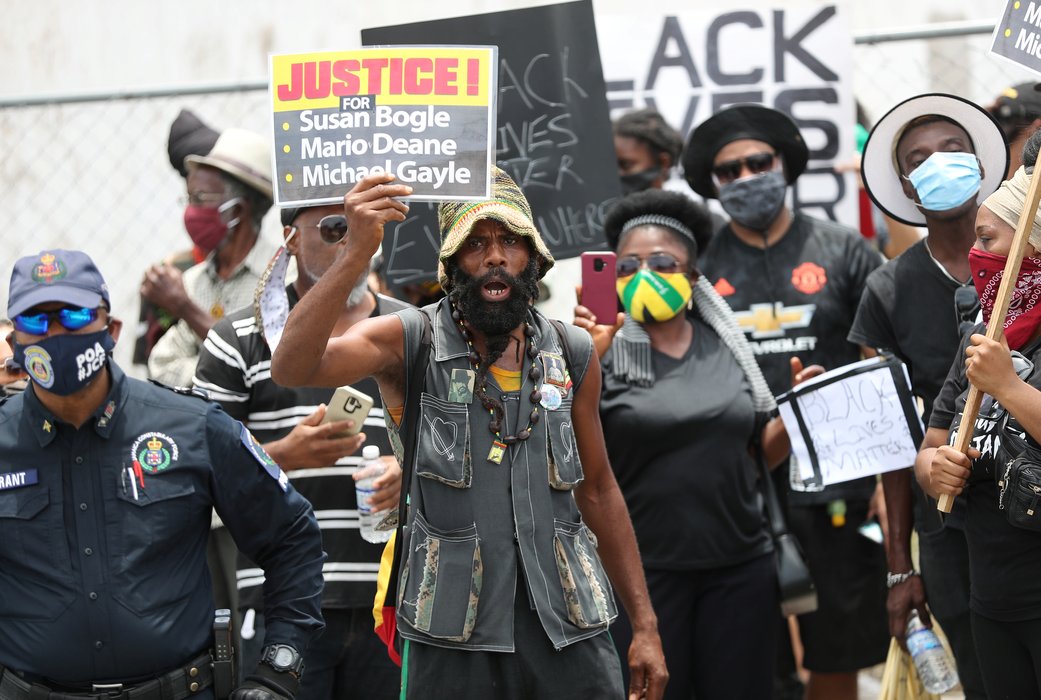
Association
Chapter 3 of Jamaica’s constitution guarantees the right to freedom of association
As reported by Freedom House, Jamaica has a robust and vibrant civil society, often working in communities in areas such as education, health, environment and assistance to excluded populations. However, organisations sometimes struggle to secure funding and to attract volunteers.
In 2020, the UN Human Rights Committee noted that some human rights civil society organisations had faced obstacles registering as legal entities under the current legislation regulating the non-profit sector, the Charities Act. The Committee also reported receiving information on cases of threats, harassment and attacks against human rights defenders.
The International Trade Union Confederation reported that in 2021 there were major concerns about the widespread breach of workers’ rights in the business process outsourcing (BPO) sector in Jamaica. Thousands of workers in the sector were on fixed-term and temporary contracts in companies that did not recognise trade union representation. The country also adopts a broad definition of “essential services” which limits some workers’ right to strike.
Peaceful Assembly
Freedom of assembly is protected by Jamaica’s constitution and is generally respected in practice. However, Part Three of the Public Order Act requires that organisers request permission to hold public meetings and marches at least 24 hours in advance. The Act also gives authorities ample discretion to refuse permission to maintain order and establishes penalties that include a fine and imprisonment for non-compliance with the law.
In September 2021, at least four people were arrested at a march against Jamaica’s mandatory coronavirus vaccination policy. A protest leader was charged for violating sanitary requirements, for not obtaining permission for the protest and for resisting arrest.
Peaceful protests are regularly held over salient social, political and economic issues such as infrastructure provision and police violence.
In 2022, about 350 people attended protests calling for reparations for the slave trade in the context of a visit by the British royal family’s Prince William and Duchess Katherine. Demonstrators from the Advocates Network also demanded an apology from the UK for their colonial past and handed a letter expressing their grievances to a representative of the British High Commission. In 2022, the country celebrated 60 years of independence from Britain.
Prince William and Kate Middleton's visit to Jamaica was met with protests on Tuesday. This comes as pressure is building in the Caribbean country to remove Queen Elizabeth as head of state. https://t.co/fb1jHz75WA pic.twitter.com/UZ5kJ8LHg3
— Democracy Now! (@democracynow) March 23, 2022
Expression
The Jamaican constitution guarantees the right to free expression, which is generally upheld by authorities. According to Reporters Without Borders, the right to information is also widely respected, there is plurality in the media and the country ranks among the safest in the world for journalists. Defamation was decriminalised in 2013.
However, as reported by Freedom House, journalists occasionally face intimidation around electoral periods and the presence of powerful criminal groups may lead to self-censorship regarding their activities.
In June 2020, Parliament adopted a Data Protection Act setting guidelines for the collection, storage, processing, use and release of data. Press associations called on government to review problematic provisions in the bill that could affect the secrecy of journalistic sources and the standards applied to media outlets.